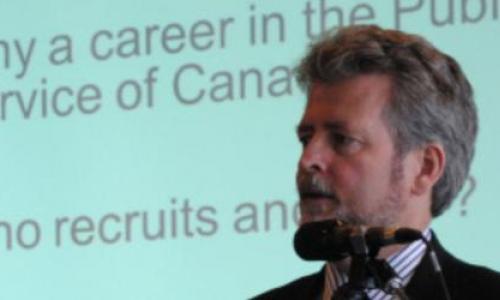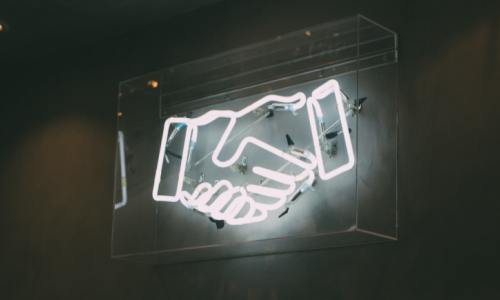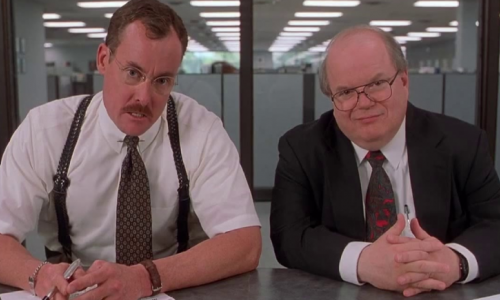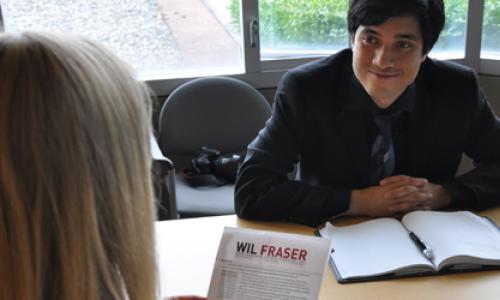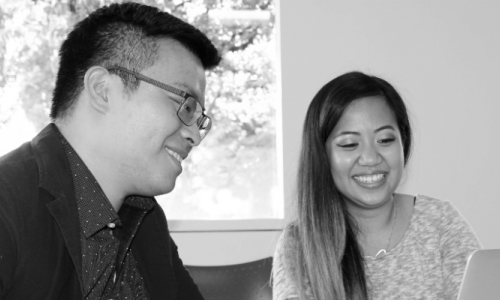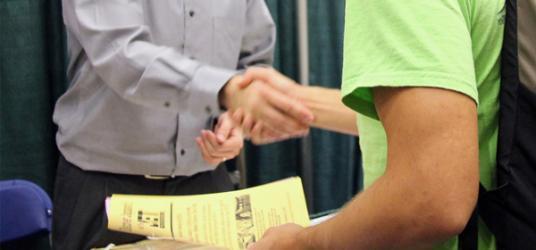
Going to an interview used to be so simple.
-
Walk into the room.
-
Introduce yourself.
-
Shake hands.
-
Sit down.
-
Brace yourself for trial by fire.
What could be easier? Well, maybe a lot of things, but at least steps 1 through 4 were pretty straightforward. Right? I mean, what could possibly go wrong with introducing yourself and shaking hands?
…Or so I thought, until the H1N1 flu virus hit. Suddenly, doctors were advising people that handshakes could lead to transmission of bugs, germs, and who knew what else. Newspapers everywhere showed pictures of people shaking elbows instead of hands—remember that picture of athletes awkwardly bumping elbows after a football game?—and suddenly handshakes were taboo. At the beginning of last semester, I introduced myself to a classmate and proffered my hand, only to have him back away saying “Sorry, I just washed my hands!”
Fortunately, public mania about contracting H1N1 is now fading into dim memory. But do some traces still linger? When I walk into an interview room, am I now expected to bump elbows with my interviewer?The importance of this question didn’t strike me until I started preparing for my first multiple mini interview (MMI), where I would have to introduce myself to 11 different interviewers. The way I saw it, I only had three options:
a. Shake hands. (Potential response: “We don’t shake hands anymore.” Or a shake, followed by frantic rubbing with sanitizer.)
b. Bump elbows / bow to the employer. (Potential response: panic, as in “Is she going to attack me with that elbow?”)
c. Do nothing and wait for the interviewer to shake hands first. (Potential response: nothing. We face each other with silly smiles while each of us waits for the other to start.)
None of those options seemed particularly appealing. To resolve this dilemma, I asked the opinion of Mr. Tony Botelho, Associate Director of Career Services (conveniently holding an interview workshop for the benefit of SFU students). This is what he suggested:
1. Shaking Hands is Better than Bumping Elbows or Waving.
Even though handshaking may cause transmission of some virus particles, it is still considered polite in Western culture to greet someone with a shake and a smile. Unless you really are ill, it is better to shake hands than to settle for an awkward wave. A good, firm handshake can also help you stand out among the applicants.
2. Initiate the Handshake.
Hesitation about whether you should proffer your handor not will only add to your nervousness. Rather than sticking out your hand halfway and then awkwardly stuffing it behind your back, take the initiative to begin the handshake. If the interviewer doesn’t want to shake hands, the onus is on them to let you know.
3. If You Really are Sick…
If you have a slight cold or minor cough, you may feel uncomfortable shaking hands. That’s perfectly fine! After you walk into the interviewer’s office, introduce yourself and say “Sorry, I have a bit of a cold.” The interviewer will understand (he/she doesn’t want to get sick either!). That being said, don’t force yourself to attend an interview if you have pneumonia ; it will only frighten the employer! (See the horror story in “No One Wants Your Germs”)
4. What if the Interviewer Refuses to Shake my Hand?
Handshakes are part of standard business etiquette, and so most people are prepared to shake hands. However, if for whatever reason the interviewer rejects your outstretched hand, don’t take it personally! Maybe he/she has a cold. Remember that you followed normal procedure, and proceed with the rest of your interview.
As trivial as it may seem, handshakes are an important part of the interview process. In the recent “Work for the Best” panel hosted by Career Services, one employer pointed out that the handshake sets the tone of the interview – a limp, wet handshake with poor eye contact can speak volumes about your interview prep. Walk into the room with a confident handshake, and you will make a great first impression!











